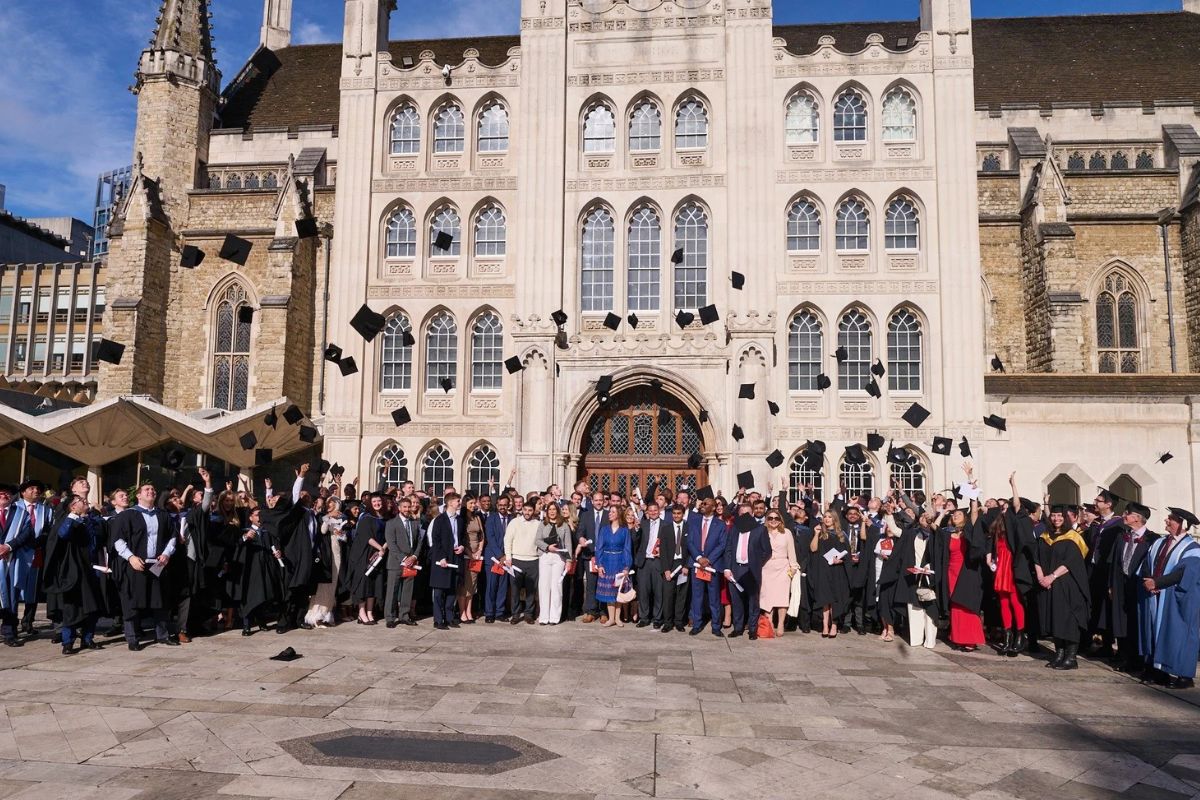Key learnings on developing a music career

It takes creativity, determination adaptability and good business acumen to build a sustainable career in today’s music business.
The introduction of new recording technologies and streaming has made it easier for musicians to release their music and build a sustainable career. It means that it has never been more important for them to know how to develop their talents and how business works.
As interest in a music career grows, students are being given unprecedented access to some of the best talent in the industry to guide and help them on their journey by enrolling on degree and post-graduate courses at music college WaterBear.
Here, a group of alumni from WaterBear share their key learnings on how the courses have helped prepared them for a successful career.
Joining in the discussion are:
- Jordon Hambling
- Duncan Howlett
- Emma Scott
- Lisa McKeown
- Tom Shrimpton
What were the main factors which drove you to taking such a focussed course?
Jordan Hambling: It is notoriously difficult to get the experience you need unless you get some lucky breaks. Anything that gives me that extra edge in my ambition to become a technician and sound engineer for live performances and a studio engineer producer is vital.
The course structure has certainly done that. I’ve had a real kickstart by being able to do play drums in the college session band; work as a keyboard and drum technician for the band Sleeper; work alongside top-level professionals in music venues; and having the experience of being recording engineer at an established recording studios – all while gaining a degree.
Duncan Howlett: Working in music is incredibly exciting. I was a successful portfolio musician creating, playing and teaching although behind it all I felt that something was missing. I needed to expand my boundaries. A friend suggested that the MA in Music Industry Enterprise could unlock that desire for more and it was immediately obvious that there were real opportunities for me to stand out from the crowd.
Looking back now I can say he wasn’t wrong as the course opened new doors to areas I hadn’t previously considered. I’ll give an example. I had the unforgettable experience of going to Abbey Road studios to make a film – yes, I did have to pinch myself that I was at the actual Abbey Road studios! It’s had a lasting impact as that film built my credibility as a film maker and has led to commissions which wouldn’t have been possible without the course.
What are the benefits of studying at a specialist music college?
Emma Scott: Undoubtedly the MA has led to me planting a lot of seeds to grow the business. It has also given me much needed skills to improve the way I plan and run the business, as well as giving me the impetus to stop talking and get on with things before someone else beats you to it!
Actions do speak louder than words and since graduating my national radio plugging and PR business Pluggin’ Baby has grown as I have launched a radio show which airs on over 40 stations across the UK; continue to grow my industry-led social media channel by creating regular content on bands and artists; and I have even found the time to publish an e-book to help aspiring musicians navigate the industry.
Above all, I’m now running a much tighter ship which doesn’t let the love of promoting new music take over from the commercial realities of running a business.
Having access to mentors with experience of the music industry must be invaluable?
Jordan Hambling: There is no doubt that working with a mentor helps you develop. Mine was Keiron Pepper who has played with bands like the Prodigy and Sleeper. When we chatted he would share the knowledge and experience gained from working at such a high level within the industry. I know this has helped build my production, song writing, engineering and drumming skills.
I also got new perspectives from the shadowing in my placements and I know this has helped my people and communication skills all of which will stand me in good stead in my career.
Tom Shrimpton: As a student having a mentor can be invaluable. Every week I was amazed that I was sitting down with my mentor Andy Guitar, who just happens to be the highest viewed guitar tutor on YouTube! Here he was chatting through my ideas and giving guidance on refining my performance techniques. I know the reality is people would pay a lot of money for that opportunity which I got as part of my course!
Lisa McKeown: Working with my mentor has been a major part of the new found confidence I have running my management business. The tutors guided me getting a vision of what I was going to do with the business, how I apply that and how I grow on a personal level. By taking the learnings from the course and the discussions with my mentors I have now established several income streams and started to build a team around me to free up my time to work on the business growth.
Having access to such industry knowledge must now be bringing real benefits?
Duncan Howlett: I came to the course wanting to push my boundaries and it has certainly done that. I always struggled with my confidence and self-belief, but I have seen that grow. It also taught me about how to organise and plan so that you can overcome challenges. Doing that has helped me grow my music and film business to the extent that I have now moved to bigger premises, and I am now taking on extra people to help me build on all the ideas I’m generating.
One of the biggest endorsements I can give is that it has such an impact on me that my wife, who is also a musician, is now doing the course herself!











Responses